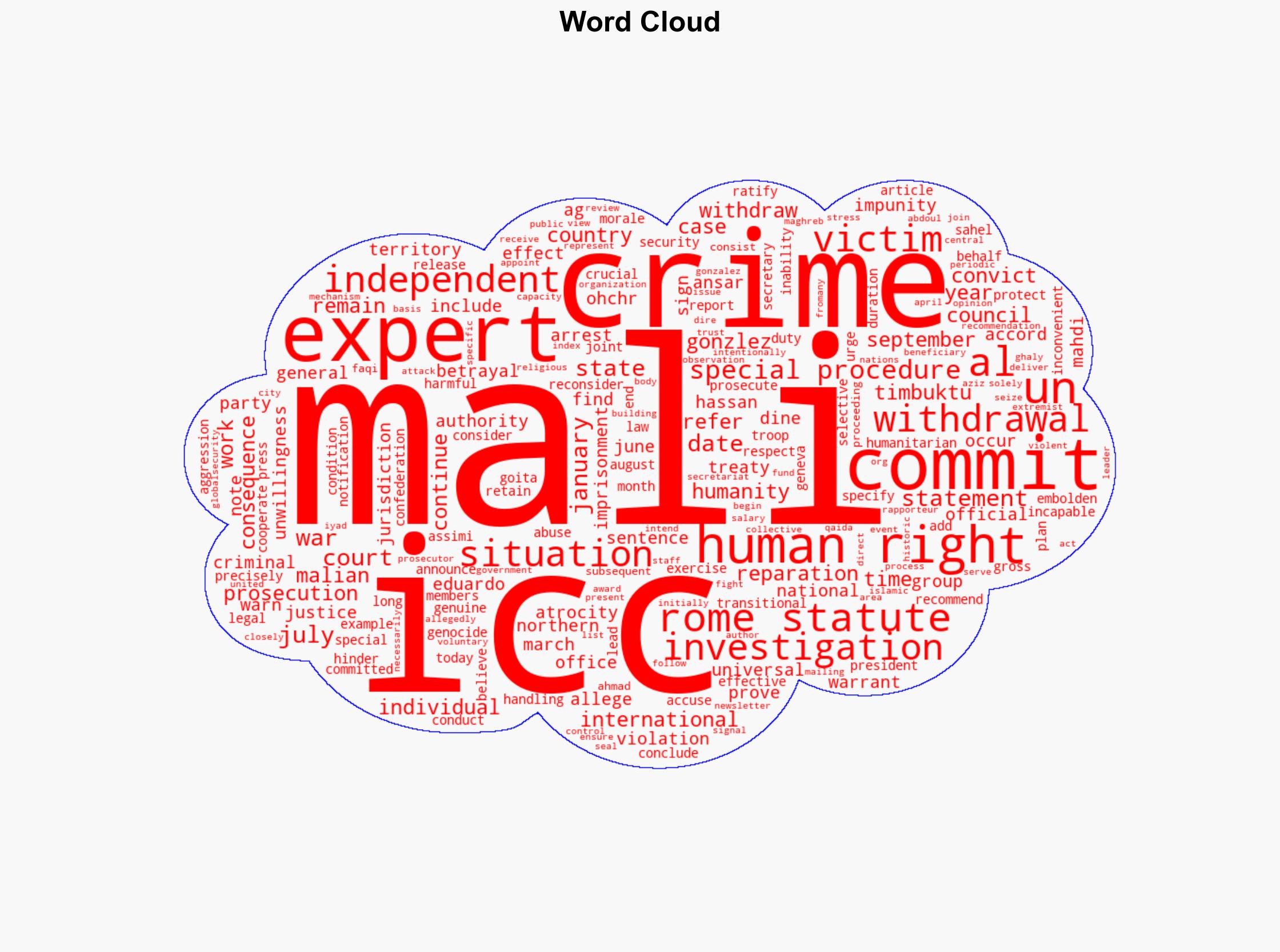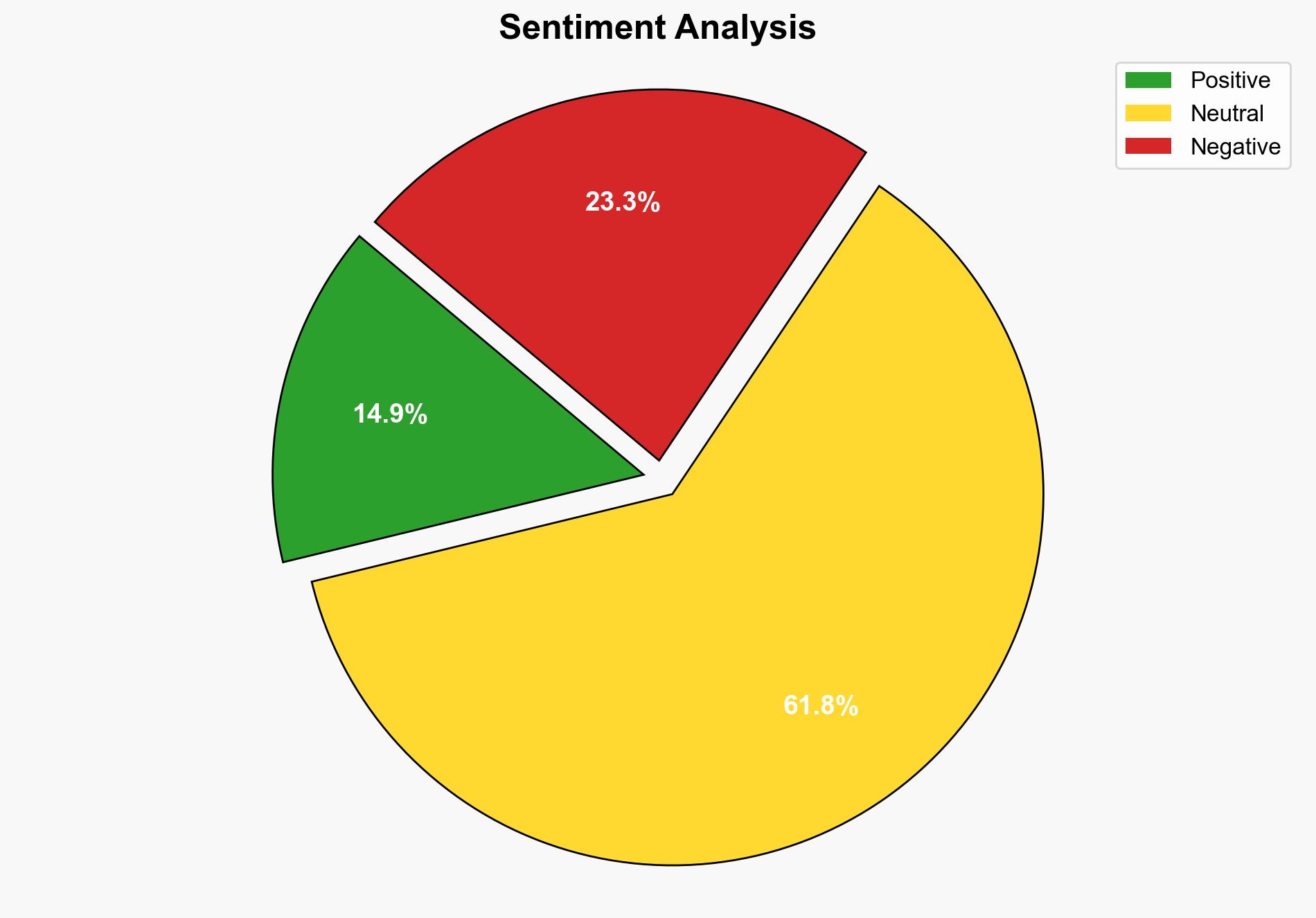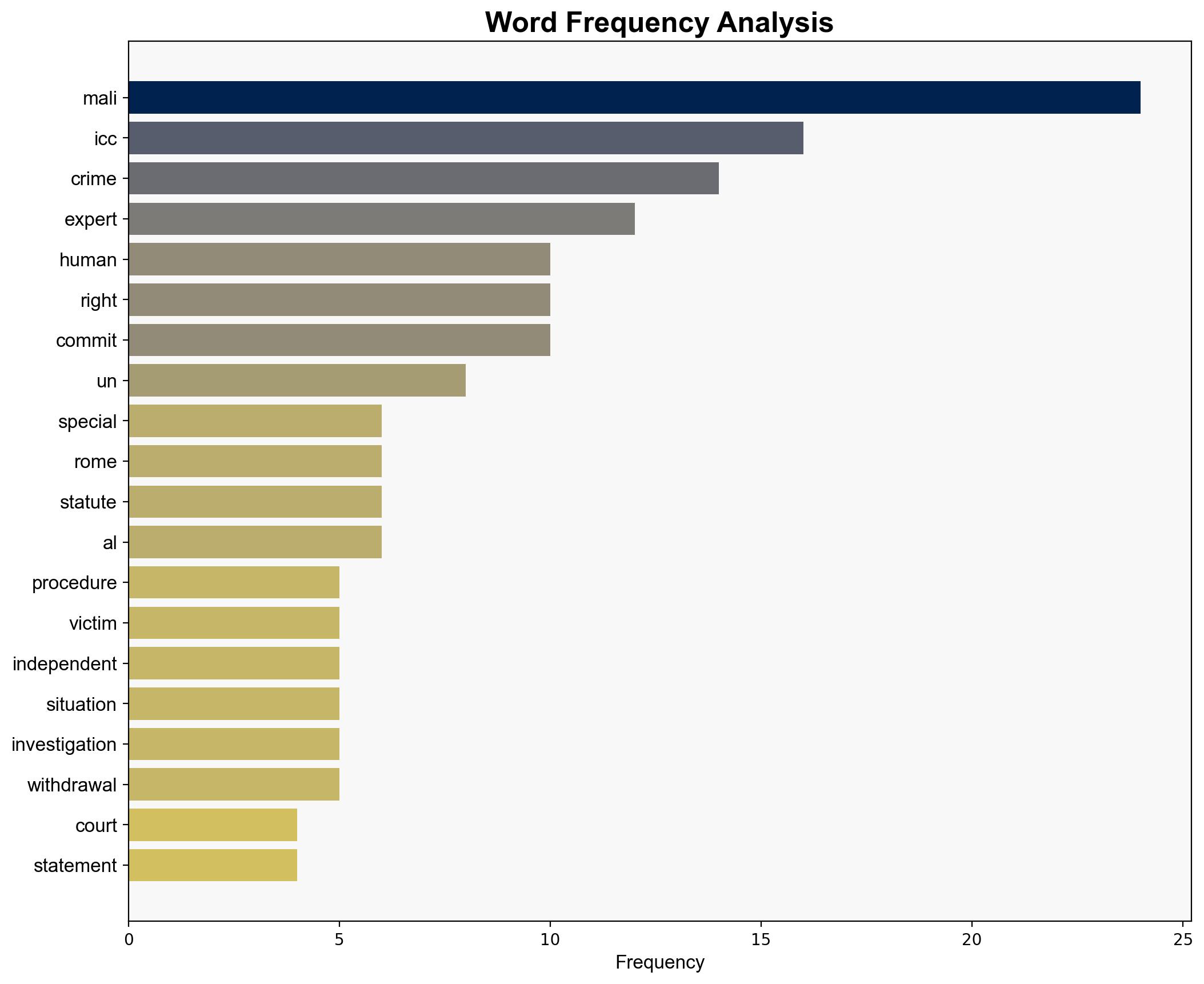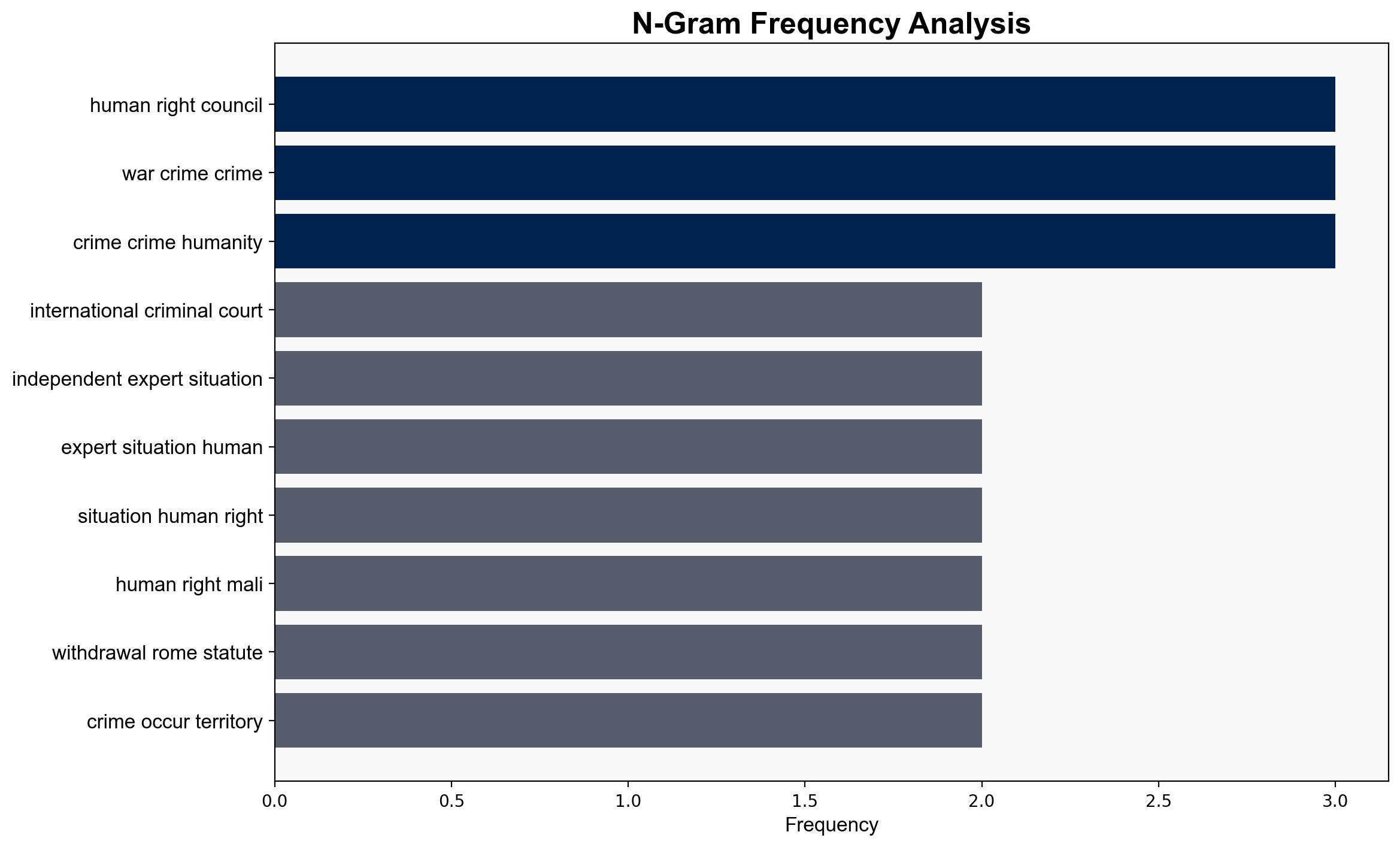UN expert calls on Mali to remain in the International Criminal Court – Globalsecurity.org
Published on: 2025-09-29
Intelligence Report: UN expert calls on Mali to remain in the International Criminal Court – Globalsecurity.org
1. BLUF (Bottom Line Up Front)
The most supported hypothesis is that Mali’s withdrawal from the International Criminal Court (ICC) is primarily motivated by a desire to shield military and political figures from prosecution, rather than a genuine belief in the ICC’s ineffectiveness. This hypothesis is supported by the timing of the withdrawal and the ongoing investigations into crimes committed by Malian nationals. The recommended action is to engage diplomatically with Mali to address their concerns while emphasizing the importance of accountability and justice for victims. Confidence level: Moderate.
2. Competing Hypotheses
1. **Hypothesis A**: Mali’s withdrawal from the ICC is driven by a strategic decision to protect its military and political leaders from international prosecution, as ongoing investigations may implicate them in serious crimes.
2. **Hypothesis B**: Mali’s decision is based on a genuine belief that the ICC is biased and ineffective, as suggested by their accusations of selective justice and inability to handle prosecutions effectively.
Using the Analysis of Competing Hypotheses (ACH) 2.0, Hypothesis A is better supported due to the timing of the withdrawal coinciding with ongoing investigations and the ICC’s history of convicting individuals from Mali. Hypothesis B lacks substantial evidence beyond public statements.
3. Key Assumptions and Red Flags
– **Assumptions**: It is assumed that Mali’s leadership is acting in self-interest to avoid prosecution. Another assumption is that the ICC’s actions are perceived as a threat by Malian authorities.
– **Red Flags**: The public rationale of ICC bias may be a strategic narrative to justify withdrawal. The lack of alternative mechanisms proposed by Mali for ensuring justice is a significant gap.
– **Blind Spots**: Limited information on internal deliberations within Mali’s government regarding the withdrawal decision.
4. Implications and Strategic Risks
– **Geopolitical**: Mali’s withdrawal could weaken international legal frameworks and embolden other states with similar grievances to exit the ICC, undermining global justice efforts.
– **Security**: Reduced accountability may lead to increased human rights violations and impunity within Mali, potentially destabilizing the region further.
– **Psychological**: Victims’ trust in international justice mechanisms may erode, leading to decreased cooperation with international bodies.
5. Recommendations and Outlook
- Engage with Mali through diplomatic channels to address their concerns about the ICC while emphasizing the importance of accountability.
- Encourage regional bodies to mediate and propose alternative justice mechanisms if Mali proceeds with withdrawal.
- Scenario-based projections:
- **Best Case**: Mali reverses its decision following diplomatic engagement, reinforcing international justice norms.
- **Worst Case**: Mali’s withdrawal leads to increased impunity and regional instability.
- **Most Likely**: Mali proceeds with withdrawal, but international pressure leads to some form of compromise on accountability mechanisms.
6. Key Individuals and Entities
– Eduardo González, independent expert on the situation of human rights in Mali.
– General Assimi Goïta, signatory of the withdrawal statement.
– Ahmad Al Faqi Al Mahdi and Al Hassan Ag Abdoul Aziz, individuals previously convicted by the ICC.
7. Thematic Tags
national security threats, international justice, human rights, geopolitical stability





